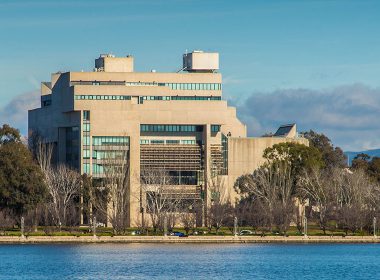Snapshot
- Many people seeking asylum who arrived in Australia by boat from 13 August 2012 have recently been notified they have 60 days, with the possibility of a 30-day extension, to apply for a protection visa. Non-compliance could result in the person being barred from applying for a visa, loss of support payments, and deportation.
- The Government has announced its intention to bar protection applications from 1 October 2017.
- Community legal services, including the Refugee Advice and Casework Service and NSW Young Lawyers, are trying to fill some of the access to justice gaps with the help of pro bono solicitors and registered migration agents, but the fear is people seeking asylum will have to navigate the process alone.
The majority of people seeking asylum who have attempted to enter Australia by boat since 13 August 2012 have been blocked from applying for a protection visa. Those who remain in Australian sovereign territory but have not been cleared through immigration have become known as the ‘Legacy Caseload’.
When the Migration and Maritime Powers Legislation Amendment (Resolving the Asylum Legacy Caseload) Act 2014 (Cth) came into force in mid-2015, the so called ‘Legacy Caseload’ group was gradually sent letters granting them permission to apply through a ‘fast track’ process for one of two types of temporary protection visas: the three-year Temporary Protection Visa or the five-year Safe Haven Enterprise Visa. The last of the letters providing permission to apply for one of these visas was sent in September or October 2016.
Community legal centres and groups across Australia responded with significant pro bono assistance from private firms. Since 2015, special pro bono clinics have been set up in NSW to take statements and assist with form filling. In August 2016, the Human Rights Committee of NSW Young Lawyers also started the Refugee Assistance Project – its own collaborative project with the Refugee Advice and Casework Service (‘RACS’) to provide more pro bono ‘form filling’ clinics, and RACS organised follow-up appointments with Registered Migration Agents who could provide applicants with expert migration advice. There was a long waiting list for these pro bono services.
At the end of 2016, the Government started sending letters to the remaining applicants notifying them that they must complete their visa applications within 60 days, with the possibility of a 30-day extension. Applicants were informed that failure to comply could result in them being barred from applying for a visa, that they would lose support payments, and ultimately face deportation. As far as we are aware, not all people seeking asylum who are in the ‘Legacy Caseload’ have received this letter.
RACS and other community legal services around Australia responded by starting weekend ‘blitz days’ to maximise the amount of people that could be assisted. NSW Young Lawyers also held a ‘blitz day’ assisting 46 people in April.
The Government publicly announced in mid-May 2017 that anybody in this cohort of people that had not applied would, on 1 October 2017, be liable to be barred from applying for protection, and subsequently face deportation. NSW Young Lawyers and RACS held further combined ‘blitz days’, helping up to 25 people each time, in response to this announcement.




